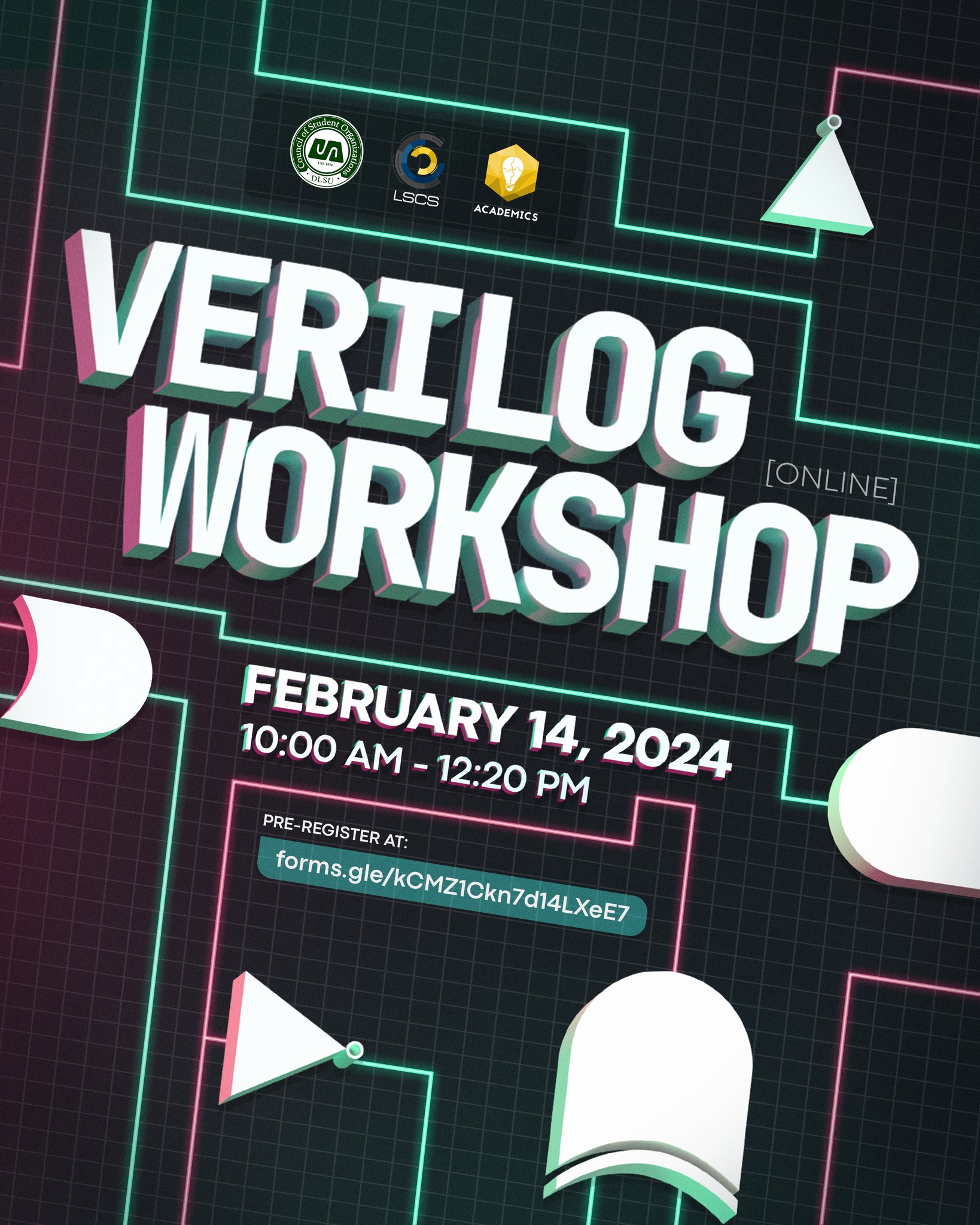Verilog Workshop
Empowering through Circuits

The La Salle Computer Society (LSCS) held the Verilog Workshop on February 14, 2024, via Zoom, in hopes of enhancing skills in Verilog, a widely-used hardware description language (HDL).
Robert Joachim Encinas, Vice President of the Academics Committee, stated that the workshop aimed to assist Introduction to Computer Architecture (CSARCH1) students in their HDL project, following faculty suggestions. The workshop comprised a lecture and a hands-on activity.
Jonathan Paul Cempron, a De La Salle University professor with a master’s in computer science, conducted the lecture. He covered HDL basics, Verilog configuration, syntax, and keywords. Emphasizing Verilog's resemblance to C, commonly studied by first-year College of Computer Studies students, Cempron elucidated its suitability for CSARCH1 classes. The lecture also explored Verilog modeling, akin to programming paradigms, covering gate level, dataflow, structural, and behavioral modeling, and testing methodologies using test benches.
In the hands-on section, participants worked in pairs, applying lecture concepts. Tasks involved recreating circuits like half adders and ripple carry adders based on provided characteristics such as truth tables, circuit diagrams, Boolean expressions, and specified modeling requirements. This practical segment allowed participants to solidify their understanding of Verilog through application.
Hannah Tayzon, Google Developer Student Clubs (GDSC) Lead and workshop participant, shared her thoughts: "After diving into Verilog in our CSARCH1 class and LSCS workshop, I'm confident I'll be using this hardware description language whenever I work on electronic circuits. While some might think it's not relevant beyond our hardware-related classes, I'm passionate about technology and plan to delve deeper into electronics in the future. I look forward to using Verilog in my passion projects involving digital circuits."
In conclusion, the workshop served as a valuable platform for students to enhance their Verilog skills. The lecture provided foundational knowledge, while the hands-on activities enabled practical application. Tayzon's perspective highlights the workshop's significance in empowering students to explore and apply Verilog beyond academic settings.